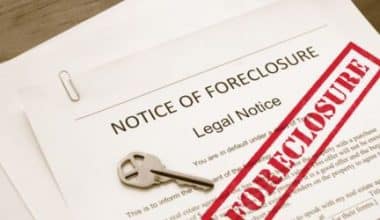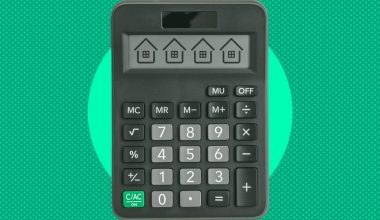A commercial mortgage is a loan given to a business to buy a property for commercial purposes.
Commercial mortgages, also known as business mortgages, give business owners the option of taking out a loan to buy real estate or land for their enterprise. The money is borrowed from a bank or a specialized lender and paid back in monthly interest-bearing payments, similar to a home mortgage.
Additionally, commercial mortgages can be used by investors who want to buy a property to lease to another business or by a residential property owner who wants to buy multiple properties and rent them to tenants, although they are most frequently used by business owners who want to own the premises where their business is based.
Since owning your own business space allows you to have more control over how it is run, there are risks associated with commercial mortgages, so it’s crucial to weigh the benefits and drawbacks of property ownership.
Commercial mortgages can be riskier due, among other things, to the potential difficulty in selling the property.
The article explains how to obtain a commercial mortgage, the differences between a commercial loan and a mortgage loan, and what to think about before applying.
What are Typical Terms for a Commercial Mortgage?
The following are the terms attached to the commercial mortgage which you must consider before applying:
- In exchange for a fixed-rate mortgage with a term of 5 to 30 years, lenders typically demand a 25% down payment (at a minimum).
- Commercial mortgages typically have terms of 5 to 10 years, whereas home loans frequently have terms of 20 to 30 years.
- Lenders will request a copy of the financials and order from their commercial mortgage broker for an appraisal to confirm the property’s value and ascertain whether the current rents can cover the debt service.
What are Commercial Mortgage Rates?
Commercial mortgage interest rates can either be fixed-rate or floating-rate. Therefore, the rate placed on commercial mortgages is typically determined by the term of the loan being matched to the swap spread.
The interest rate quoted on a specific piece of commercial mortgage is significantly influenced by market interest rates. Mortgage interest rates for businesses are typically higher than those for homes.
- Rates for owner-occupied commercial mortgages can range from about 2.3% to as much as 12%.
- The majority of loans fall between 3% and 7%. Generally speaking, the interest rate charged increases with risk.
- Mortgages for commercial investments have marginally higher rates so particularly strong applications may be submitted at a rate of 2.85% or even less.
- Most loans will have interest rates of 3.5% to 6%. The slight rate increase is because commercial mortgage lenders tend to view investment properties as having a slightly higher risk.
How Long Does a Commercial Mortgage Last?
The duration of commercial mortgages may last for five to twenty-five years. Long-term loans are risky for banks, so the longer the term, the harder it is to qualify.
Note that several commercial loans have harsh penalties for making extra principal payments or paying off the balance early. This is an additional crucial point to remember.
What are the Different Types of Commercial Mortgages?
- Permanent Loans:
This is the first mortgage on a commercial property. The loan must have at least five years to be considered a permanent loan.
- Commercial construction loans:
This is a one- to two-year loan taken out to construct a business building. The lender has control over the loan proceeds to ensure that they are only applied to the building’s construction.
- Takeout Loans:
A takeout loan is a long-term loan that is used to pay off a construction loan.
- Bridge Loans:
A bridge loan is a brief first mortgage loan for a piece of commercial real estate. It could last anywhere between six months and three years. Compared to permanent loans, bridge loans typically have much higher interest rates.
- Conduit Loans:
This is a long-term loan secured by a common type of commercial property, underwritten following secondary market standards, and carrying a hefty prepayment penalty. This loan has a low-interest rate.
What is the Most Common Commercial Mortgage?
- Small Business Administration (SBA) Loans:
These loans are made to owners of commercial real estate and are largely guaranteed by the Small Business Administration but written by finance firms.
This is the most common commercial mortgage because It was established to promote the establishment and expansion of small businesses.
Advantages of a Commercial Mortgage
Taking a commercial mortgage may make sense for the reasons listed below.
- Taking a commercial mortgage to purchase a property can lower your monthly rent costs when commercial real estate costs are high, which can free up working capital.
- You want to increase your income by utilizing your commercial property. As the value of your commercial property increases, you can build equity by owning it.
- When you own your property, you may restructure it for a very specific use. The specialized building required for manufacturing is not something the typical landlord will finance. They would also anticipate that once you leave, you will reverse those changes at your own expense.
- You may have discovered the ideal location for a different business. So purchasing the property and developing it might provide an additional source of income.
What to Consider Before Submitting a Commercial Mortgage Application
If you are considering applying for a commercial mortgage, you should consider whether you can afford the monthly repayments. Your credit rating could be harmed if you can’t keep up with your monthly payments, and if you default, the lender may take possession of the property.
If your business’s credit score is low, you might still be granted a mortgage, but the interest rate might be higher than it would be if your credit score were high.
Before applying, if at all possible, check your credit score and see if you can raise your business’ credit score.
Lenders may view your business as being more high-risk than an established business if you are a new company with little to no credit history or trading history. If so, they might ask for personal guarantees and run a credit check on you.
Who is a Commercial Mortgage Broker
A commercial mortgage broker acts as a go-between for businesses or people who need commercial loans and negotiates mortgage loans on their behalf. The commercial lender gives the loan in exchange for the commercial property of the borrower, which acts as the security.
Mortgage brokers are currently the biggest suppliers of mortgage products to lenders in developed mortgage markets like the United States.
Even though most brokers do not offer loans, some do. A commercial mortgage broker is frequently used to manage the financing process, connect the borrower with potential lenders, and obtain multiple quotes.
Benefits of Using a Commercial Mortgage Broker
Engaging the services of a knowledgeable commercial mortgage broker can help you navigate the process and make it a little simpler, even though applying for a mortgage can be challenging.
They’ll make sure you have the right information for the loan application and give you advice on the products that are currently on the market and which are best for you and your company.
They will also be able to provide insight into the length of time lenders take to review applications, which could be helpful when trying to find the ideal property for your company.
Is a Commercial Loan Called a Mortgage?
Yes, a commercial loan can also be called a commercial mortgage.
A commercial mortgage is also a mortgage loan that is backed by commercial real estate, like an apartment complex, shopping mall, office building, or industrial warehouse. A commercial mortgage’s proceeds are typically used for commercial property acquisition, refinancing, or development.
Commercial loans are designed to balance the needs of the commercial mortgage lender and the borrower. Additionally, commercial mortgages and loans have features like interest rate, term, amortization schedule, and prepayment flexibility.
Differences Between Commercial Mortgages vs Personal Mortgages
The main distinction between a commercial mortgage and a personal mortgage is that the former is used to purchase real estate for a business, while the latter is used to purchase a residence.
Due to the larger size or value of the property or land, commercial mortgages also tend to be larger.
Although commercial mortgages can be obtained at a fixed rate, a variable rate is more common, meaning the rate may change depending on market changes.
Commercial mortgages typically have higher interest rates because lenders view them as being more high-risk.
Lastly, while a commercial mortgage lender may accept a deposit as low as 20% to 40% of the value of the property, a personal or residential mortgage may only require a deposit of between 5% and 10%.
What is Commercial Mortgage Banking?
Commercial mortgage banking is a product intended to meet the funding requirements of established small and medium-sized enterprises in viable businesses to partially finance the acquisition of business premises, office space, and warehouses through the outright purchase scheme.
It gives the client the ability to own their commercial property, which over time may be used as collateral for additional borrowings.
How to Obtain a Commercial Mortgage
You can either apply for a commercial mortgage directly with a lender or through a specialized broker.
Lenders will perform many checks when reviewing a commercial mortgage application, similar to those performed when considering a residential mortgage, including affordability and the applicant’s financial situation.
The purpose of the business credit check is to determine how the business manages its current debts and financial commitments, as well as any outstanding issues.
Furthermore, lenders typically require up to three months’ worth of business bank account statements because they want to determine whether the business is profitable.
Additionally needed are any leases or tenancy agreements, as well as documentation of identity and address. To demonstrate that you have a sound financial plan, you might also be required to submit a business forecast.
Although the application process varies from lender to lender, the following steps should be taken to obtain one:
- Submitting an online application for a business loan.
- Submitting data regarding your company.
- Obtaining a property valuation for the area you want to purchase
- Waiting for the lender to complete all paperwork and legal due diligence.
- Receiving a formal mortgage offer from your bank after approval.
- SUBPRIME: Meaning, Mortgage, Lenders, Crisis
- FORECLOSURE MORATORIUM: MORTGAGE & FORECLOSURE
- PAY OFF MORTGAGE OR INVEST: How to Make the Right Choice
- HOW TO USE EQUITY IN YOUR HOME: Detailed Guide






